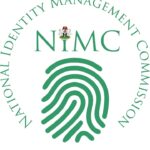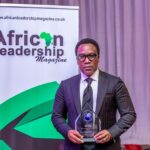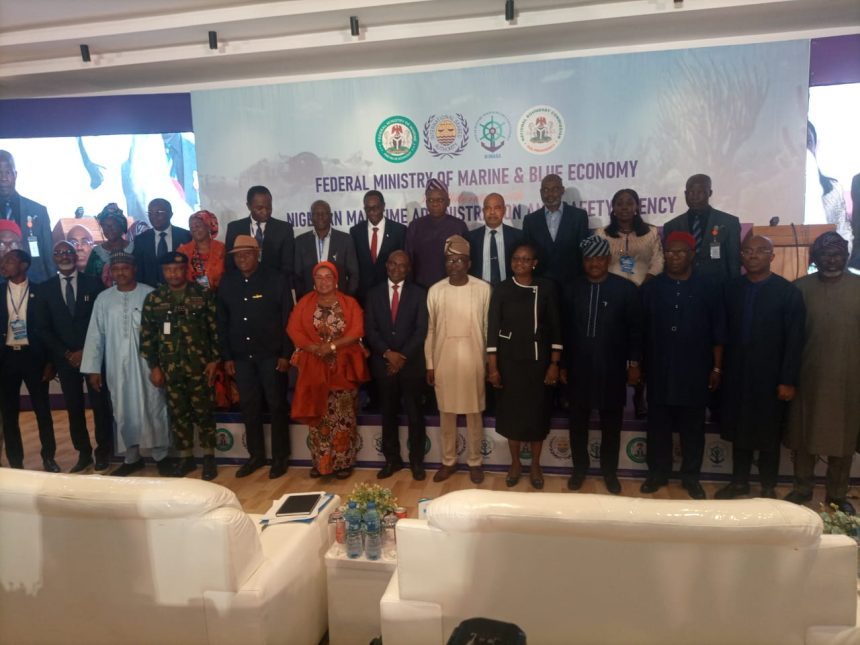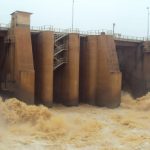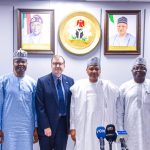By Chidi Ugwu
Adegboyega Oyetola, Minister of the Federal Ministry of Marine and Blue Economy, on Wednesday unveiled the Federal Government’s plans towards economic diversification by harnessing Nigeria’s marine resources, and capitalizing on the global surge in deep-sea exploration.
Oyetola gave the hint at a stakeholders’ sensitization workshop on deep seabed activities in Abuja, organized by the the Nigerian Maritime Administration and Safety Agency (NIMASA).
Represented by the Permanent Secretary, Oloruntola Olufemi, the Minister, emphasized the workshop’s significance in harnessing Nigeria’s marine resources, marking a pivotal step toward economic diversification, stressing that the establishment of a dedicated Ministry of Marine and Blue Economy in 2023 underscores Nigeria’s commitment to capitalizing on the global trend of deep-sea exploration.
He highlighted the potential transition from a fossil fuel-based economy to one focused on mineral resources, particularly emphasizing the opportunities presented by wave and tide energy, asserting that effectively utilizing these marine resources could play a crucial role in meeting Nigeria’s energy demands.
In his presentation, Dr. Dayo Mobereola, Director General of NIMASA, stated that the workshop is to highlight the potentials of deep seabed mining as a key component of Nigeria’s blue economy.
According to him, the deep seabed, extending from approximately 200 to 11,000 meters, is rich in unique ecosystems and mineral resources, including copper, nickel, cobalt, and gold.
The NIMASA boss declared that these metals are crucial for modern technologies and renewable energy solutions, adding that despite the growing interest in deep seabed mining, commercial operations have yet to commence due to environmental concerns and the need for a robust regulatory framework.
Dr. Mobereola emphasized the importance of aligning Nigeria’s laws with international standards set by the International Seabed Authority (ISA) and the United Nations Convention on the Law of the Sea (UNCLOS).
He highlighted that deep seabed mining could provide new revenue streams, job creation, and support sustainable development while addressing environmental impacts through thorough assessments.
“It involves the extraction of mineral deposits from the ocean floor. The extraction of such minerals such as copper, nickel, cobalt, and gold is crucial for modern technologies and green energy solutions.
“There has been high interest in deep seabed mining due to the significance of these metals. However, there have not been commercial operations of the mining as there are concerns about environmental impacts and the need for a regulatory framework” he said.
The two day workshop aims to enhance awareness among stakeholders regarding the importance of deep seabed exploration while addressing environmental implications and ensuring sustainable practices in marine activities.
This initiative, stakeholders say reflects Nigeria’s strategic approach to leveraging its extensive coastline and inland waterways for economic growth and energy sustainability.




